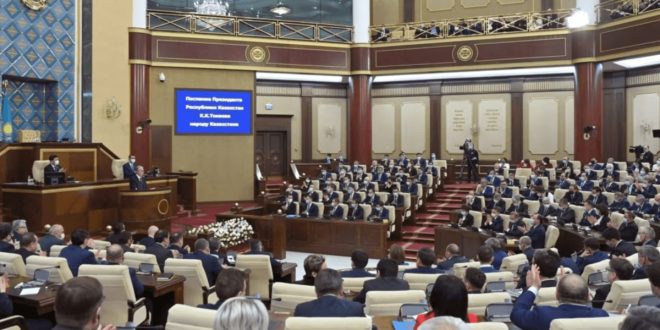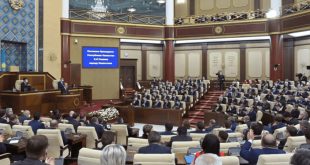The government of Kazakhstan has authorised amendments to the Tax Code that will require all licensed gambling operators to report on the wagering activities and profiles of Kazakh citizens.
A mandate that was approved by the Mazhilis (Parliament) in November has been imposed as of 12 February 2024, and will require Kazakh gambling operators to submit direct customer reports to the State Revenue Committee (SRC) of the Ministry of Finance.
As such, all Kazakh-licensed gambling firms must ensure a “direct communication for reporting obligations with the SRC”, as Kazakhstan becomes the first nation in Central Asia to impose such a measure monitoring individual gambling activities.
As reported by SBC Eurasia, last week SRC Director Aliya Jetibaeva assured “the confidentiality of Kazakh consumers and their bets would be strictly maintained under the tax secrecy provisions of Article 30 of the Tax Code of Kazakhstan.”
On the sensitive matter of consumer confidentiality, the SRC outlined that reporting obligations complied with OCED rules. The tax authority cited that “all staff had signed non-disclosure agreements to protect confidential information, including tax and customs secrets.”
“Any unauthorized disclosure of confidential information by civil servants is subject to criminal liability, highlighting the seriousness with which information security is treated.”
Yet an inspection by CIS gambling consultancy 4H Agency revealed that “the legislation also mandates banks and financial organizations to provide information on legal entities’ financial transactions upon request from the tax authorities, enhancing tax payment oversight.”
4H Agency detailed that customer reporting obligations indicated a tightening of tax supervision imposed on gambling operators, in which the SRC can inspect financial transactions through banks as a principal control.
As detailed by Dmitry Hotsyn of 4H Agency, it remains unknown if Kazakhstan will adopt the European model of gambling market control or develop a unique approach.
“It is unclear whether Kazakhstan will introduce control over the gambling market according to the European model or will come up with some of its approaches because the changes mentioned above to the law only establish the obligation of operators to transfer information.
“The set of data, for example, bet, payout, game time, player data, and so on, will be established by the decision of the regulatory authority and is currently unclear.
“At the same time, the rule on the possibility of checking financial transactions through banks suggests that the primary goal of these changes is tax control over the gambling market and filling the budget.”
Kazakh markets developments are followed closely, as customer wagering and tax reporting duties could be replicated in further CIS and Central Asia jurisdictions revising respective gambling regimes in 2024.
Given ongoing issues in individual markets related to responsible gambling, advertising, fair taxation, combating illegal operators, and payment processing, further regulatory adjustments are expected.








